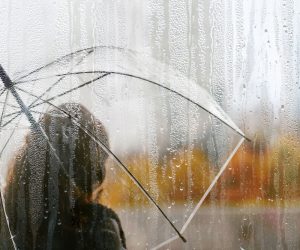Tips for Coping with Seasonal Affective Disorder Without Drugs and Alcohol

What Is Seasonal Affective Disorder?
Seasonal affective disorder, commonly referred to as SAD, is a form of depression associated with the changing seasons and often occurs simultaneously each year. The disorder typically begins at the start of a season like winter, and the symptoms dissipate when the season ends. Unfortunately, seasonal affective disorder and substance abuse often go hand-in-hand, as individuals who struggle with this disorder have difficulty managing their symptoms.
When individuals who are struggling with SAD do not fully understand the gravity of their disorder or do not get the appropriate help they need, they may turn to drugs and alcohol as a means to cope. This puts them at a high risk of becoming dependent and addicted to substances of abuse, as it may provide temporary relief of the symptoms they are experiencing. This toxic and destructive pattern can lead to addiction, and when this is the case, addiction treatment becomes necessary.
Symptoms of SAD
When looking for signs and symptoms of SAD, you should know beforehand what to look out for if you believe someone is struggling with seasonal affective disorder and substance abuse. Some of the symptoms include:
- Feeling sad and down daily
- Losing interest in hobbies they once enjoyed
- Lack of motivation to partake in activities
- Feelings of hopelessness
- Difficulty concentrating
- Low energy levels, feeling lethargic
- Having a hard time sleeping during the night
- Sleeping much more than is typical
- Withdrawing from social outings, gatherings, and activities
If you notice any of these seasonal affective disorders and substance abuse symptoms present in you or a loved one, you must find immediate addiction treatment help.
Risk Factors for Seasonal Depression
Not every individual who experiences seasonal changes will suffer from seasonal depression. Several risk factors play a part in why certain individuals struggle with depression and others do not.
Some of the most common risk factors for seasonal depression and seasonal affective disorder include:
- Having an underlying mental health disorder such as bipolar disorder or depression
- Genetic factors such as a family history of individuals who have SAD
- Low levels of vitamin D
- Gender: Women are more likely to struggle with SAD than men
- Those who live further from the equator and experience shorter, darker days are more susceptible to SAD
- Age: young individuals are at a higher risk of having SAD than their older counterparts
The Relationship Between Seasonal Affective Disorder and Substance Abuse
Since SAD is complicated to manage independently without the assistance of therapy, counseling, and MAT (medication-assisted treatment), many of those who struggle often turn to drugs and alcohol. A recent study from the National Institute of Drug Abuse suggested that close to half of those who struggle with a co-occurring disorder also battle comorbidity.
Much of the population who struggle with SAD live in climates and time zones with long, dark, and cold winters, which are triggers. In turn, the symptoms of depression are exacerbated and amplified, which is when they often turn to substances of abuse as a coping tactic. Self-medicating is not the answer to coping with SAD and abusing substances that temporarily enhance feelings of happiness will only make the side effects of the disorder more extreme.
Tips for Coping With Seasonal Affective Disorder
There are many ways to cope with SAD that do not involve leveraging the effects of substances of abuse. If an individual struggles with SAD in conjunction with an underlying mental health disorder, dual diagnosis treatment is necessary.
Here are some tips for coping with seasonal affective disorder without drugs and alcohol:
- Psychotherapy, speaking to a therapist and attending counseling sessions
- Cognitive-behavioral therapy (CBT)
- Medication such as selective serotonin reuptake inhibitors (SSRIs)
- Seek support from friends and family
- Maintain a balanced and healthy diet that is high in fruits and vegetables
Treating Mental Health and Addiction Together
It’s vital for those struggling with seasonal affective disorder and substance abuse to know that they are not alone. Getting help as soon as you realize there is a problem will help you better manage SAD. WhiteSands Alcohol and Drug Rehab offers all levels of care for many mental health disorders as well as drug and alcohol addiction. For more tips for coping with seasonal affective disorder, contact the WhiteSands Alcohol and Drug Rehab team today and learn how we can help you through this difficult time.
If you or a loved one needs help with abuse and/or treatment, please call the WhiteSands Treatment at (877) 855-3470. Our addiction specialists can assess your recovery needs and help you get the addiction treatment that provides the best chance for your long-term recovery.
